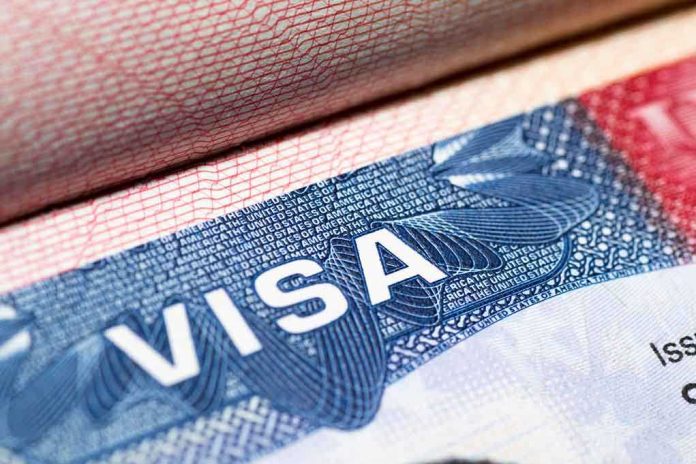
In a dramatic twist, the U.S. has revoked the visa of a Brazilian judge accused of a political witch hunt against former President Jair Bolsonaro.
At a Glance
- The U.S. revoked the visa of Brazilian Supreme Court Justice Alexandre de Moraes.
- De Moraes is under fire for targeting Bolsonaro supporters and right-wing voices.
- Trump Media and Rumble are challenging de Moraes’s orders in a U.S. lawsuit.
- The case could set a precedent for cross-border enforcement of judicial orders.
Brazilian Judge’s Actions Under Scrutiny
Justice Alexandre de Moraes, a figure who has sparked controversy in Brazil, has been at the center of a judicial storm since 2022. He has suspended nearly 150 social media accounts linked to right-wing figures and supporters of former President Jair Bolsonaro. This move has been perceived by many as an aggressive crackdown on political dissenters. De Moraes’s actions intensified after the January 8, 2023, storming of Brazil’s Congress, reminiscent of the January 6, 2021, U.S. Capitol riot. He has led investigations into alleged coup plotting and disinformation campaigns, drawing ire from Bolsonaro’s allies.
The suspension of the video platform Rumble in Brazil, ordered by de Moraes, has sparked significant backlash. He demanded Rumble appoint a legal representative in Brazil and comply with content takedown requests. Rumble, along with Trump Media & Technology Group, retaliated by filing a lawsuit in the U.S., arguing that de Moraes’s orders violate U.S. sovereignty and the Constitution. This marks a collision between national legal frameworks and international tech companies.
U.S. Lawsuit Challenges Brazilian Court Orders
The lawsuit filed by Trump Media and Rumble in the U.S. District Court for the Middle District of Florida is a bold step against foreign judicial overreach. They allege that de Moraes’s actions constitute illegal censorship, infringing on the First Amendment and the Communications Decency Act. The plaintiffs argue that these orders attempt to impose foreign legal standards on U.S.-based platforms, undermining American sovereignty. This case could potentially set a precedent for how foreign judicial orders are treated in the U.S., particularly concerning online speech and platform moderation.
The stakes are high as the lawsuit also references an executive order signed by former President Donald Trump, which rejected foreign judicial attempts to impose legal standards extraterritorially. Justice de Moraes had previously clashed with Elon Musk’s X (formerly Twitter) over compliance with Brazilian court orders, highlighting the ongoing tensions between national courts and global platforms.
Implications for Global Tech and Free Speech
The outcome of this legal battle carries significant implications for both U.S. tech companies and the broader discourse on free speech. If the U.S. court upholds the Brazilian orders, it could open the floodgates for other countries to enforce similar compliance from U.S. platforms, potentially jeopardizing the First Amendment. This scenario raises concerns about the chilling effect on online speech, particularly for political dissenters and commentators critical of foreign governments.
On the flip side, the suspension of Rumble in Brazil limits access for Brazilian users, impacting content creators and audiences. It underscores the growing trend of judicial extraterritoriality, where national courts attempt to enforce their laws on global platforms. This trend poses complex questions about sovereignty, legal jurisdiction, and the balance between combating disinformation and protecting free speech.
Sources:
Business & Human Rights Resource Centre



